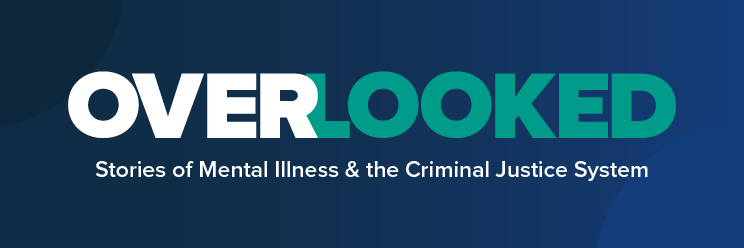Created by Congress in 2009, National Criminal Justice Month provides us all an opportunity to explore the impact of the criminal justice system on people with mental illness.
People with mental illness are overrepresented in our nation’s jails and prisons — about 2 million times each year, people with mental illness are booked into jails, with the criminal justice system – jails and prisons – becoming the largest mental health provider in the country — yet many are not receiving the care they need while incarcerated.
In 2019, Otsuka launched the Sozosei Foundation, a philanthropic arm established to fund the decriminalization of mental illness. Melissa Beck became its inaugural executive director and shares that the foundation’s focus was conceived by Dr. William H. Carson, chair of the Sozosei Foundation Board of Directors. “All of us at the foundation believe that mental health is health and that the inappropriate use of jails and prisons as America’s de facto mental health system must be addressed.”
The Sozosei Foundation provides funding for research, scaling diversion innovations, and arts and communication. They have set up a research strategy to give researchers “time and space.” “We want to allow the field to examine what we know, what we don’t know and what we wish we knew,” says Beck. The cornerstone of the research strategy is a 25-person research initiative that concludes in the summer of 2024. “A group of researchers is doing an enormous literature review, undertaking an iterative process looking at data standardization, data collection and continued gaps.” Not just of what exists, she emphasizes, but also of what is needed.
A National Judicial Task Force was established to examine hundreds of reports, analyses, and documentation on states’ responses to mental illness in their courts. The task force made a number of important findings with corresponding recommendations supported by over 100 resources for courts and stakeholders. One of the resources to come from the task force is a Judges’ Guide to Mental Health Diversion, which was developed with early SAMSHA and Sozosei Foundation funding. The guide is intended to serve as a resource framework for courts and judges to use to promote and implement diversion strategies for individuals with behavioral health needs in their communities. Ideally, judges would collaborate with a range of system stakeholders to examine the entire diversion continuum but could also focus on one step of the process at a time. The guide focuses on jail diversion systems, post arrest, and pre plea.
Meanwhile, NAMI launched a new campaign, Overlooked: Stories of Mental Illness & the Criminal Justice System, aims to highlight the impact of the criminal justice system on people with mental illness through personal stories from the people who lived this experience. Like one NAMI advocate from North Carolina, who shared:
“What about people that don’t have a support system and they leave that jail with an untreated mental illness, having been treated poorly? Because they are behind a locked door nobody listens. I will continue to share my experience. I want to be part of the solution for people with mental illnesses that are incarcerated.”
The Sozosei Foundation is convening for the Sozosei Summit 2024 April 16-17 in Philadelphia. Unfortunately, they have reached full capacity, but you can join the waitlist, HERE. Should you be unable to join in person, the Summit recordings will be available on the Sozsoei Foundation’s YouTube soon after the event.
Sources:
- https://www.nami.org/Get-Involved/Awareness-Events/National-Criminal-Justice-Month
- https://missouri988.org/how-a-philanthropic-foundation-is-working-to-decriminalize-mental-health/
- https://www.ncsc.org/newsroom/behavioral-health-alerts/2025/jan-2-2024

